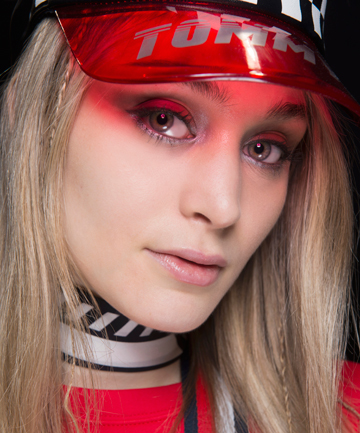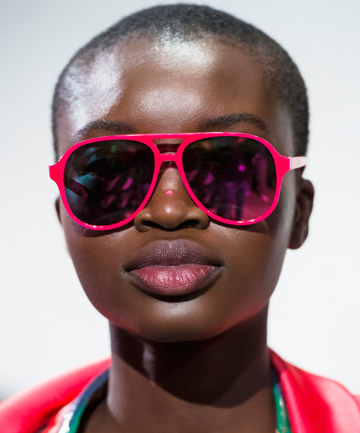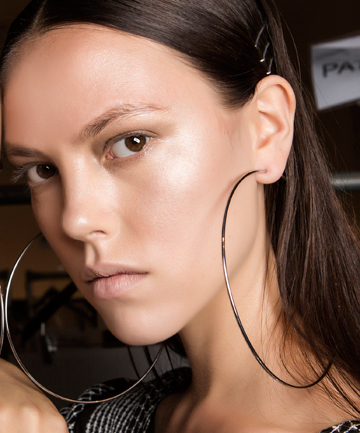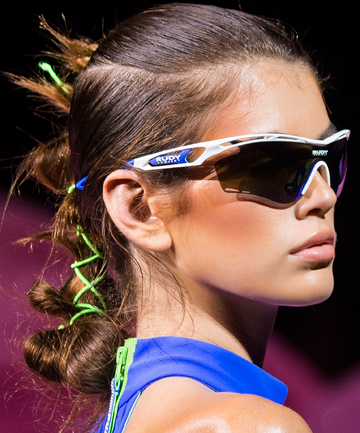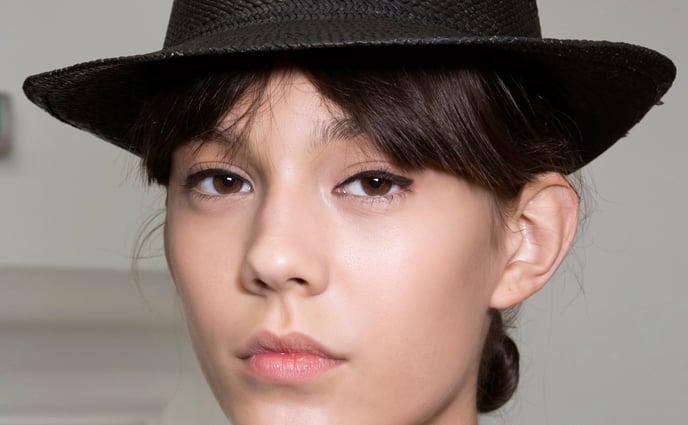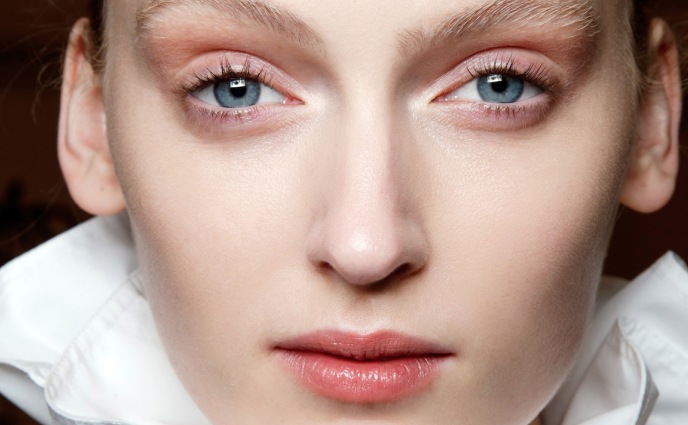Using sunscreen is one of those practices that's been drilled into us as something we're "supposed to do." We think about it when we're playing at the beach or the pool, of course, but many of us still forget sunscreen outside of the summer months.
Sunscreen isn't a seasonal item, but more like an insurance policy against maladies that can actually kill you (melanoma is real, y'all). Instead of thinking about buying a bottle or two every summer, it's more akin to a hand cream or moisturizer: you should have some with you at all times, reapply often and make it a daily habit.
But it can be super confusing, right? All this talk of SPF and spectrums and how often to apply. Here's a little breakdown of how sunscreen works and why it's the most important health aid in your beauty arsenal. With a little help from Dr. Melissa Kanchanapoomi Levin, New York City board-certified dermatologist and founder of Entiere Dermatology, here's why sunscreen is your best friend for life.
Image via Imaxtree
Cover image via Imaxtree
Sunscreen isn't a seasonal item, but more like an insurance policy against maladies that can actually kill you (melanoma is real, y'all). Instead of thinking about buying a bottle or two every summer, it's more akin to a hand cream or moisturizer: you should have some with you at all times, reapply often and make it a daily habit.
But it can be super confusing, right? All this talk of SPF and spectrums and how often to apply. Here's a little breakdown of how sunscreen works and why it's the most important health aid in your beauty arsenal. With a little help from Dr. Melissa Kanchanapoomi Levin, New York City board-certified dermatologist and founder of Entiere Dermatology, here's why sunscreen is your best friend for life.
Image via Imaxtree
Cover image via Imaxtree
Essentially, sunscreen is a product that blocks UV radiation from the sun from impacting your skin. That's it. Because as good as that sunlight feels on your skin, the sun does emit dangerous UV radiation, which can cause a host of issues from sunburn to premature aging and wrinkles, to more dangerous issues like all sorts of skin cancers, the most commonly known being melanoma.
Image via Imaxtree
Image via Imaxtree
The UV stands for ultraviolet, which is the light spectrum of the sun's rays that cause the most damage to human skin. The UV rays that we're most concerned with are ultraviolet A and ultraviolet B, or UVA and UVB, respectively.
UVB rays are the ones that cause sunburns and damage, while UVA radiation is responsible for wrinkles and premature skin damage. The Environmental Protection Agency ("EPA") estimates that 90 percent of skin aging is caused by a lifetime of exposure to UVA rays. Which is where SPF comes in.
Image via Imaxtree
UVB rays are the ones that cause sunburns and damage, while UVA radiation is responsible for wrinkles and premature skin damage. The Environmental Protection Agency ("EPA") estimates that 90 percent of skin aging is caused by a lifetime of exposure to UVA rays. Which is where SPF comes in.
Image via Imaxtree
SPF stands for "sun protection factor" and it's a rating of how much protection the product provides from one type of cancer-causing sunray: ultraviolet B or UVB. SPF is not a measure of protection against UVA light, nor is it (contrary to popular belief) a measure of how many minutes of protection you have (SPF 30 doesn't mean it's effective for 30 minutes). It's a multiplier of how long you can go without burning. Which means if you'd normally burn in about five minutes, an SPF of 15 means you could go 75 minutes without burning from UVB rays. The increase in the SPF number is an incremental increase in the amount of harmful UVB radiation filtered out. This means if SPF 15 filters about 93 percent of harmful UVB, SPF 30 filters about 97 percent.
Levin recommends all her patients use a broad-spectrum sunscreen with an SPF 30 or higher.
Image via Imaxtree
Levin recommends all her patients use a broad-spectrum sunscreen with an SPF 30 or higher.
Image via Imaxtree
"Sunscreen works in one of two ways: it either blocks the UV radiation from entering the skin like a shield, which is known as a physical sunscreen, or it absorbs the UV radiation via a chemical reaction converting it to heat, which is known as a chemical sunscreen," Levin says.
The difference between them lies in the ingredients. "Basically, a physical sunscreen is a physical blocker, which contains one of two metals that constitute a physical blocker: zinc oxide and titanium dioxide. They act as a shield on the skin and repel ions or inorganic particles that hit on the skin, reflecting UV radiation," Levin explains. "Meanwhile, chemical sunscreens create blockers that convert UV radiation into heat on the skin's surface. Which is why we say when you apply chemical blockers, to apply it 30 minutes before you go into the sun because it takes some time to take effect as opposed to a physical blocker, which just sits on your skin like a shield."
Regardless of which type of sunscreen you choose, a broad-spectrum product is what you'll want to ensure you're protected against both types of harmful UV radiation. Which means you'll want to make sure it has the right ingredients.
Image via Imaxtree
The difference between them lies in the ingredients. "Basically, a physical sunscreen is a physical blocker, which contains one of two metals that constitute a physical blocker: zinc oxide and titanium dioxide. They act as a shield on the skin and repel ions or inorganic particles that hit on the skin, reflecting UV radiation," Levin explains. "Meanwhile, chemical sunscreens create blockers that convert UV radiation into heat on the skin's surface. Which is why we say when you apply chemical blockers, to apply it 30 minutes before you go into the sun because it takes some time to take effect as opposed to a physical blocker, which just sits on your skin like a shield."
Regardless of which type of sunscreen you choose, a broad-spectrum product is what you'll want to ensure you're protected against both types of harmful UV radiation. Which means you'll want to make sure it has the right ingredients.
Image via Imaxtree


